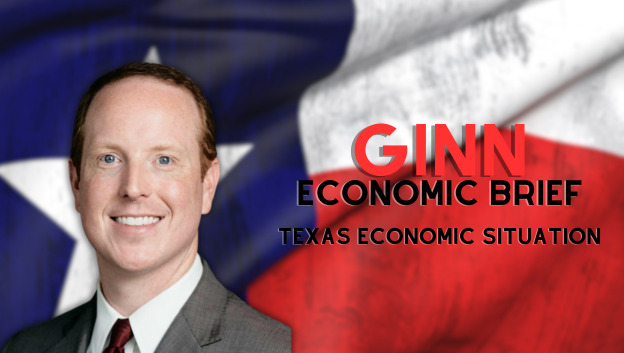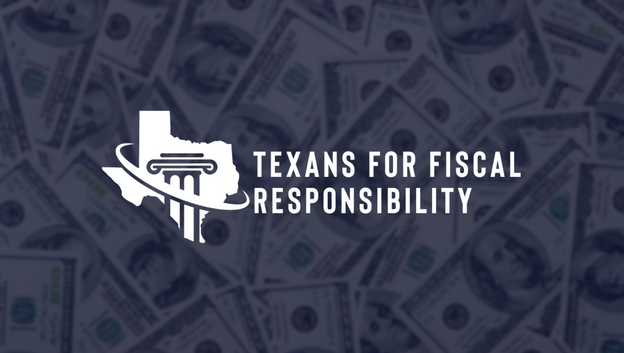
Texas on the Brink: A Call for Free-Market Revival
Overview
Texas stands at a crossroads. Renowned for its robust economy and job creation, the Lone Star State now confronts economic challenges that could define its future. Excessive government spending, burdensome property taxes, and federal missteps threaten the prosperity Texans have come to expect. Despite recent property tax relief efforts, runaway state and local spending stifles true fiscal reform. It’s time for Texas to double down on its free-market roots, slash government overreach, and set a course for sustained economic liberty and prosperity.
Current Economic Landscape
For the latest data in March 2024, Texas’ economy shows resilience, yet not without signs of stress. Labor market data from the U.S. Bureau of Labor Statistics points to a continued recovery, with nonfarm employment adding 270,700 jobs over the last year (most in the country). There were 19,100 jobs added to 14.1 million employed in March for a new record high and the 36th straight month of job creation and in 45 of the last 47 months. Household employment has been up 195,997 since last March, along with a similar increase in the labor force, with an unemployment rate of 3.9%.
However, this annual job growth has slowed to 2.0%, ranking it 8th best in the country but below Florida’s 2.2% rate and Idaho’s top rate of 3.5%. Moreover, a major factor in this job growth has been the increase in costly government jobs by 3.5% since March 2023, the fastest rate next to the growth in other services of 5.2%. The sectors of mining and logging and information had job losses over the last year, and average weekly earnings were up in most sectors except mining and logging, information, and professional and business services.
Texas has had the fourth most jobs created since February 2020 joining many other red states that have led the way since the lockdown recession. The Bureau of Economic Analysis reports a 5.7% GDP growth for 2023—ranking second-best nationally. This economic snapshot highlights the many benefits of the Texas model but leaves room for improvement from more disciplined, growth-oriented policies.
Historical Context and Policy Shifts
Texas has always been a beacon of opportunity, partly thanks to its commitment to limited spending, lower taxes, and sensible regulation. Recent trends, however, signal a departure from this successful formula. As detailed in my analysis of educational freedom and fiscal responsibility, it’s evident that the state’s current trajectory could hinder long-term prosperity. Furthermore, the much-discussed property tax relief has fallen short of its promised impact, highlighting the need for genuine and transparent fiscal reforms.
Policy Recommendations
To reclaim its position as a leader in key economic and fiscal issues, Texas must implement free-market reforms:
- Spending Less: Stronger constitutional and statutory spending limits, similar to Colorado’s Taxpayer’s Bill of Rights (TABOR), are essential at both state and local levels. Returning to fiscal conservatism after passing the largest budget increase in state history last year will free up resources for meaningful tax cuts and reduce the economic burden on citizens.
- Taxing Less: The elimination of property taxes, as included in Lt. Gov. Dan Patrick’s interim legislative charges, should be a top priority. By using state and local surpluses above stricter spending limits to gradually phase out school district maintenance and operations taxes while having local governments do the same, Texans can finally enjoy true property ownership—free from the perpetual cycle of renting from the government.
- Regulating Less: Texas must remove barriers hindering employment and entrepreneurship. This includes reducing or eliminating excessive occupational licensing and promoting policies like universal school choice to foster a more skilled and adaptable workforce.
Conclusion
Free-market principles are not just theoretical ideals but practical necessities that can elevate and sustain Texas’ economic vitality, strengthen families, and boost opportunities to flourish. Texas is uniquely positioned to lead by example with a robust economic foundation and a reputation for fostering opportunity. Reducing government intervention and promoting individual freedom are not merely beneficial; they are imperative for the future prosperity of every Texan. Now is the time to act decisively, ensuring that Texas survives and thrives in the face of national challenges. Let’s champion these changes to secure a free and flourishing Texas for generations.
Texans for Fiscal Responsibility relies on the support of private donors across the Lone Star State in order to promote fiscal responsibility and pro-taxpayer government in Texas. Please consider supporting our efforts! Thank you!
Get The Fiscal Note, our free weekly roll-up on all the current events that could impact your wallet. Subscribe today!




